Virginia Living Museum Lemon Shark update Virginia Living Museum
Lemon shark eating tuna tail Stock Photo Dissolve

Lemon sharks spend a lot of time in the sand looking for their prey, including fish, rays and crustaceans. Lemon sharks have very few predators because of their large size, but sometimes large lemon sharks will eat baby lemon sharks. They're not alone, mako sharks and tiger sharks have been seen to exhibit cannibalism as well.
Lemon shark All you need to know on Lemon Sharks

Lemon sharks seek out mangrove swamps, enclosed bays, and coral reefs. These sharks are a migratory species and will inhabit deeper water while migrating. Lemon sharks are highly adaptable. They can live in saltwater, freshwater, and brackish water. They often travel near the mouths of rivers and sounds.
Lemon Shark Photo, Northern Bahamas Natural History Photography Blog
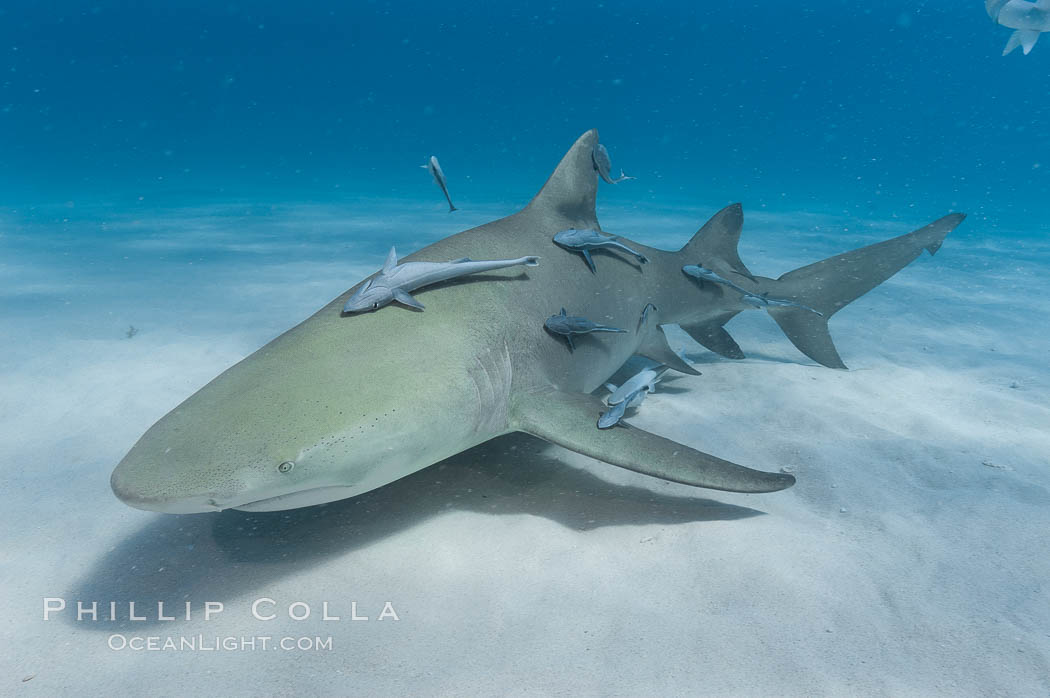
The Lemon Shark is also classified as a requiem shark, which contains 60 species and 12 genera. These sharks are migratory and give birth to live young. They are in the order carcharhiniformes, which contains over 270 species and is the largest order of sharks. These sharks have two dorsal fins, an anal fin, and five-gill slits.
Sal Lemon Shark Experience musement
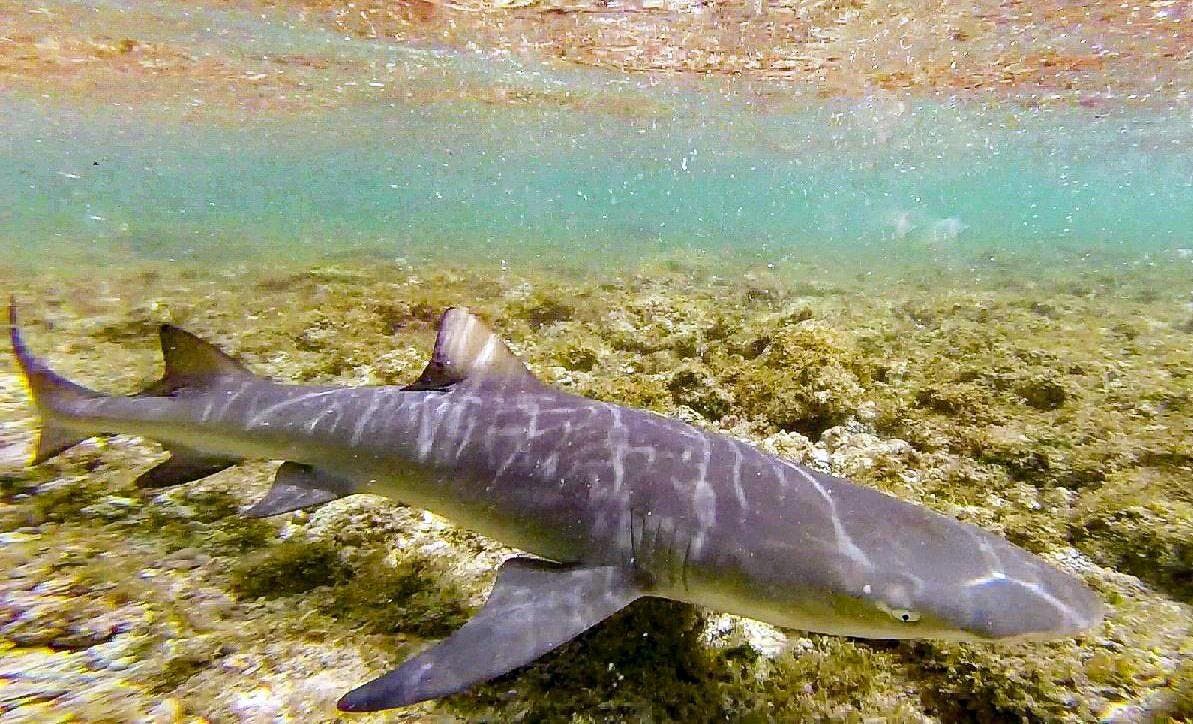
Lemon sharks can weigh up to 551 pounds (250 kg) and live up to 30 years. 1. 3. Lemon sharks are named for their yellow-brown skin that helps them camouflage in the sandy, tropical waters they inhabit. 4. Lemon sharks can be found at depths up to 300 feet (90 m). 5. Lemon sharks have a very broad appetite, eating all kinds of fish, rays,.
Lemon Shark Facts Description, Behavior, Conservation
/GettyImages-585287653-5bbcb1cdc9e77c0051019872.jpg)
The lemon shark is a medium-sized shark species that is native to the western coast of Africa, as well as the Atlantic and Pacific coasts of North and South America. The lemon shark is a nocturnal predator, feeding on fish cooperatively in small groups. The shark gets its name from its slightly yellow coloration, which helps it camouflage into the sandy bottom of shallow coastlines.
Lemon Shark Facts For Kids Kids Matttroy
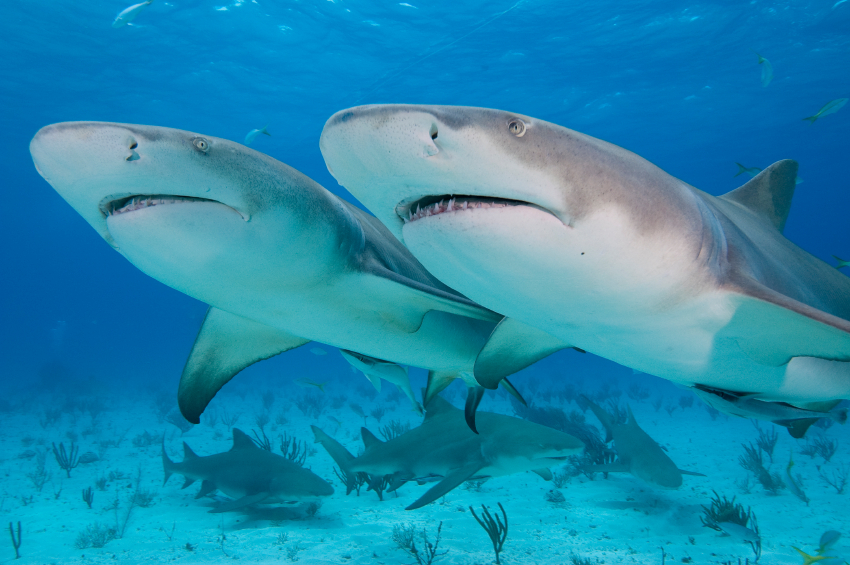
5: Social behavior: Lemon sharks are social animals, often forming schools and exhibiting cooperative behavior. 6: Live long lives: Lemon sharks can live up to 20 years in the wild, making them one of the shark species that are long-lived. 7: Excellent swimmers: Lemon sharks are excellent swimmers, able to swim quickly and easily through the water.
Lemon Shark Eating YouTube

Lemon sharks are carnivores and feed on various prey, including fish, crustaceans, mollusks, and squid. They are known to be opportunistic feeders and will eat almost anything they can find. Lemon sharks prefer large prey such as rays, jacks, groupers, and smaller species. They also consume sea turtles, which can sometimes be a significant.
My Reference Lemon Shark Lemon Shark Diet

Most members of this species are 8 - 10 ft. long, though the largest recorded lemon shark was over 11 ft. in length. The vast majority of animals weigh around 200 lbs. on average, but individuals can reach weights up to 405 lbs. These sharks have long, slender bodies with a slightly flattened shape.
Tiger beach lemon shark bait feeding

Fast Facts: Lemon Shark. Scientific Name: Negaprion brevirostris. Distinguishing Features: Stocky, yellow-colored shark with second dorsal fin almost as large as the first. Average Size: 2.4 to 3.1 m (7.9 to 10.2 ft) Diet: Carnivorous, preferring bony fishes. Lifespan: 27 years in the wild. Habitat: Coastal waters of the Atlantic and Pacific.
Sicklefin Lemon Shark at Shark Reef Marine Reserve, Fiji with Beqa Adventure Divers Ltd by Tom
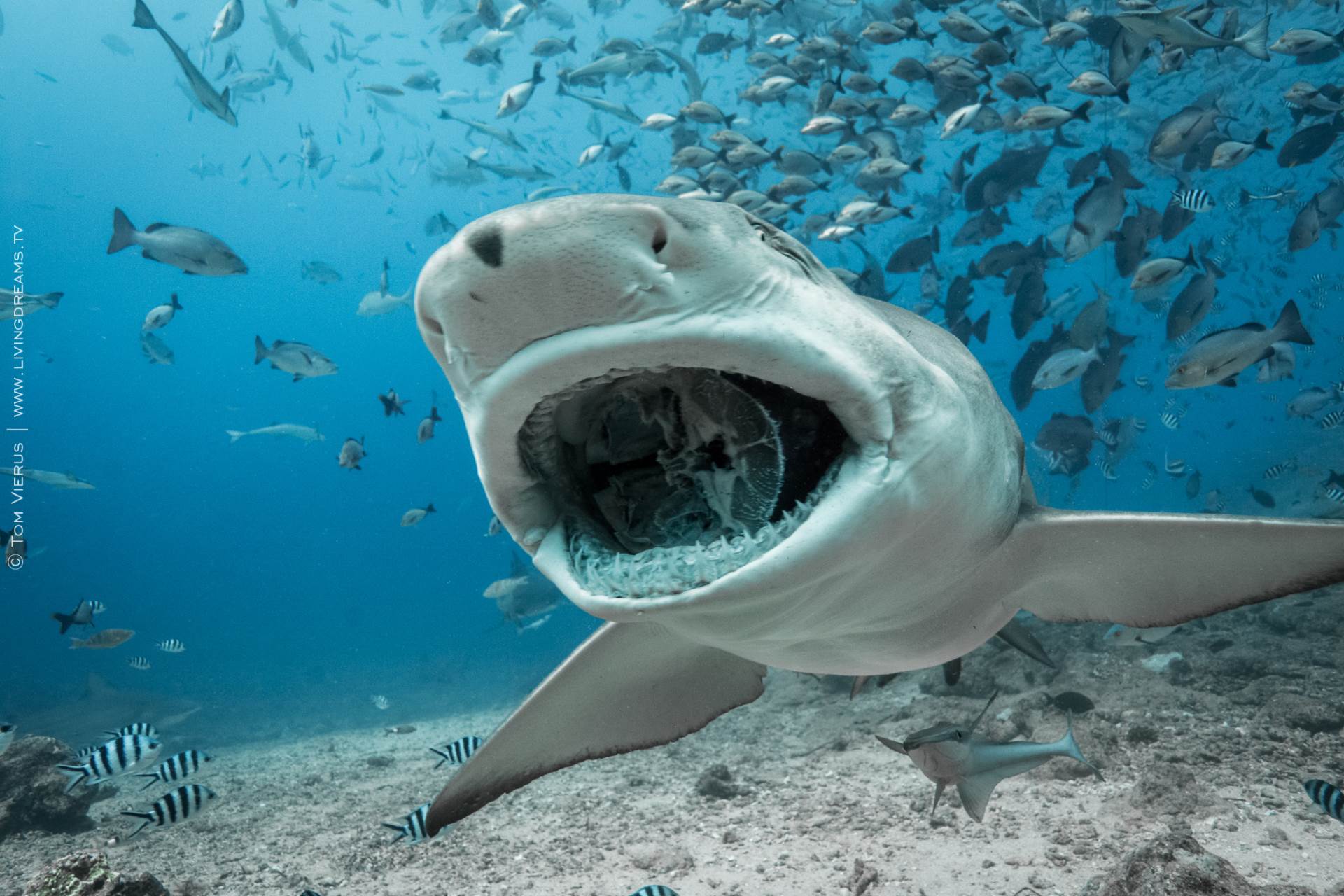
Contrary to some misconceptions, consuming shark meat is legal in the United States. However, there are some important considerations and regulations in place to ensure the well-being of shark populations and protect vulnerable species. In the US, the shark fishery is closely managed and regulated by the National Marine Fisheries Service (NMFS).
Virginia Living Museum Lemon Shark update Virginia Living Museum
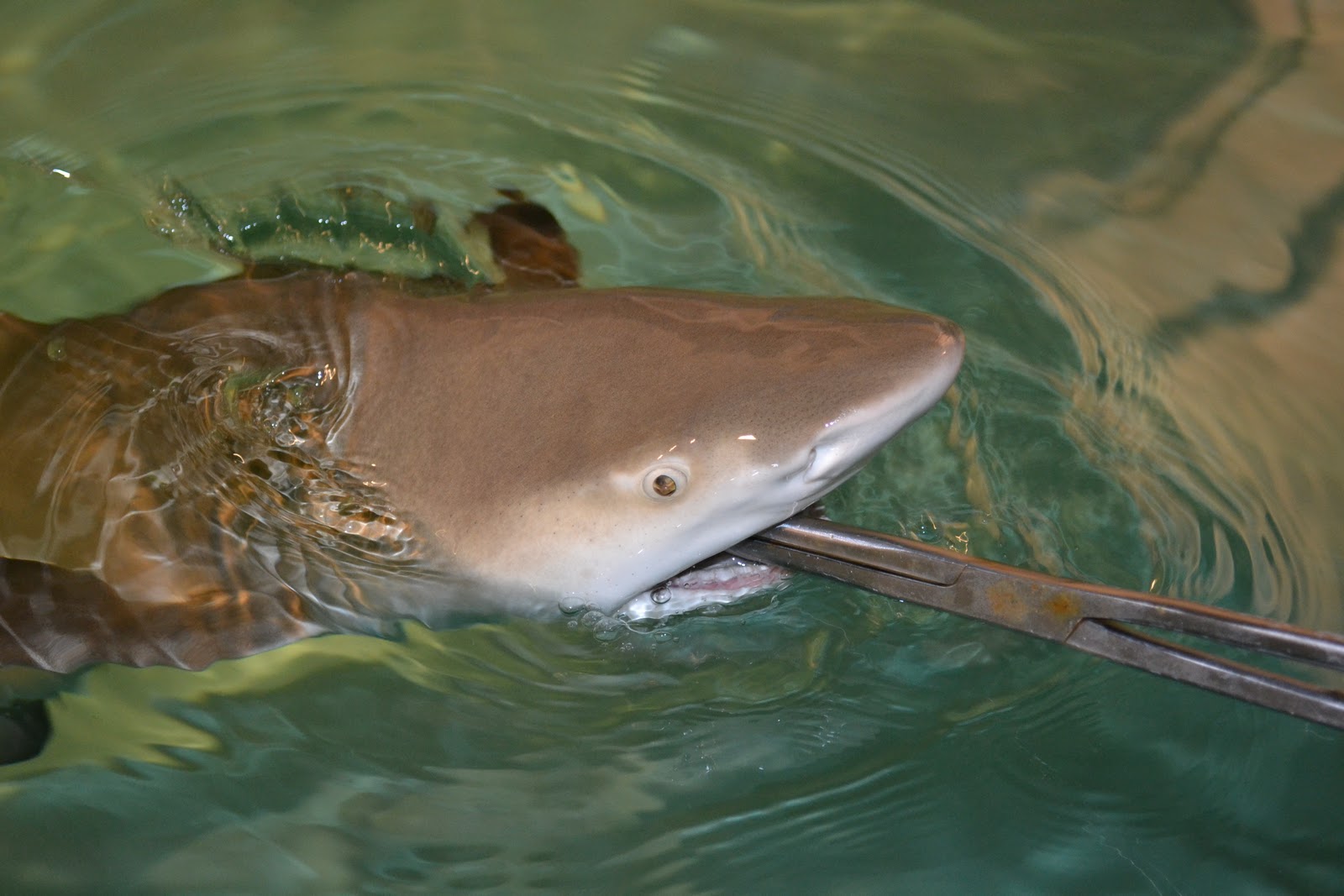
Whether hunting alone or in packs, the lemon shark is a fearsome predator with a distinctive yellow hue. Despite being one of the most studied sharks, the lemon shark still has quite a few secrets.
Lemon Shark (MatBio FISHES Matanzas Biodiversity) · NaturaLista Mexico

Lemon sharks mostly chow down on bony fish, crustaceans and an occasional seabird, but they're also part of the 1 percent of fish that practice cannibalism — large adult lemon sharks are known to eat smaller lemon sharks or babies. We humans may not be on their dinner menu, but in some areas, they're on ours. Lemon sharks are hunted commercially and recreationally, and their fins are sold.
Lemon Shark sharks
The lemon shark is just one of the over 1,000 species of shark you can find across the globe. Because of potentially depleting population sizes, the lemon shark is currently considered "Near Threatened.". Lemon sharks will eat all sorts of sea animals, including insects. With that in mind, though, lemon sharks especially love eating fish.
Sharptooth Lemon Shark Freediving in United Arab Emirates. Courses, Certificates and Equipment

The lemon shark (Negaprion brevirostris) is a species of shark from the family Carcharhinidae and is classified as a Vulnerable species by the International Union for the Conservation of Nature.Lemon sharks can grow to 3.4 metres (11 ft) in length. They are often found in shallow subtropical waters and are known to inhabit and return to specific nursery sites for breeding.
Lemon Sharks SHARK ACADEMY YouTube

Lemon sharks are found coastally in tropical waters of the Atlantic and east Pacific Oceans. They primarily inhabit coral reefs and coastal systems such as mangroves and enclosed bays. Diet. Lemon sharks eat a variety of fish species (e.g. mojarras and parrotfish), crustaceans (e.g. crabs) and molluscs (e.g. octopus).
What Do Lemon Sharks Eat? American Oceans

The lemon shark, both sicklefin and OG, is not yet endangered, as of August 2021, but it is listed as vulnerable (one step up from endangered) and on the decline. Lemon sharks are targeted by private and commercial fisherman for their meat, skin, and fins. You can eat lemon shark, and many consider it a delicacy.
.